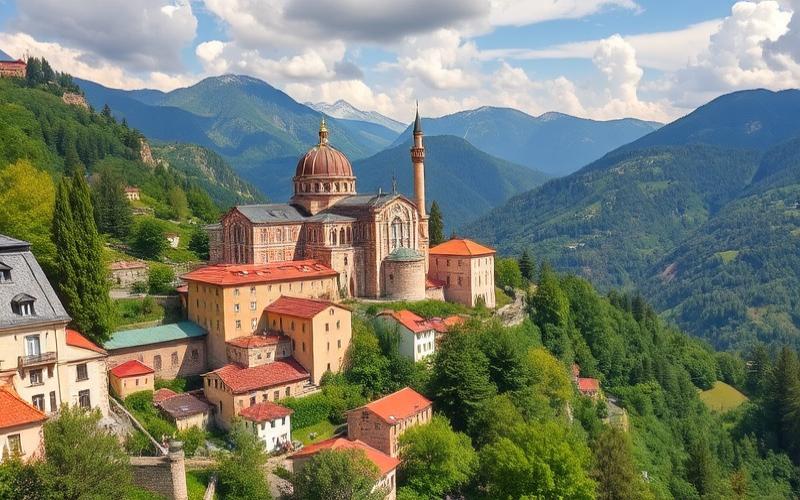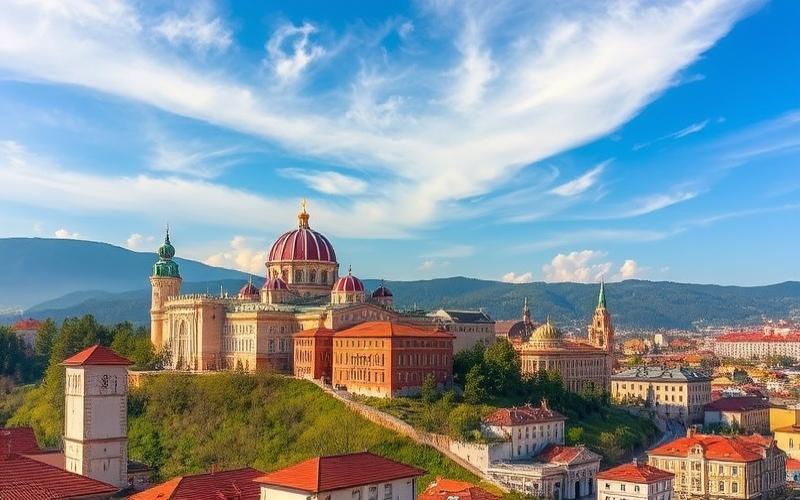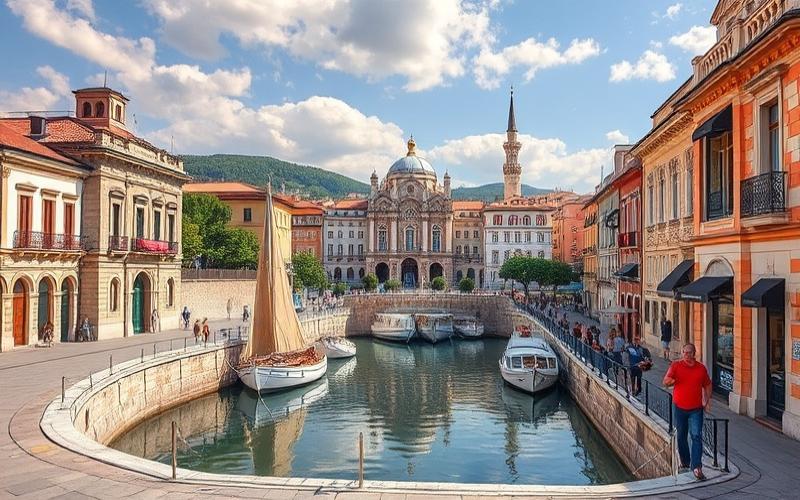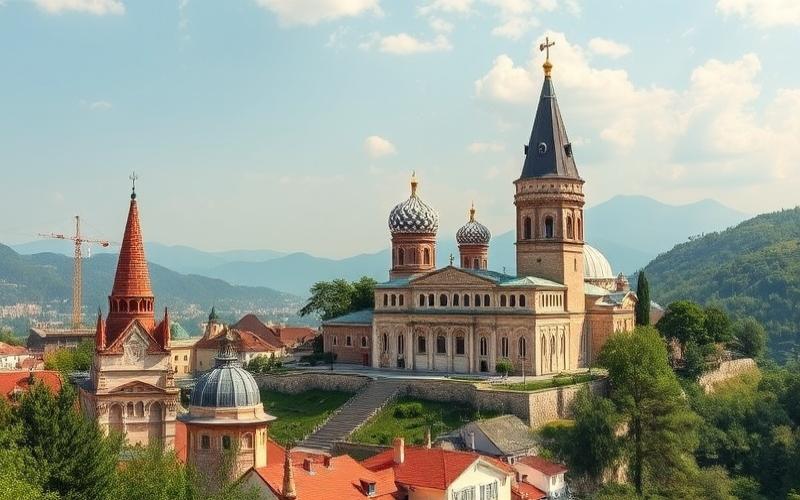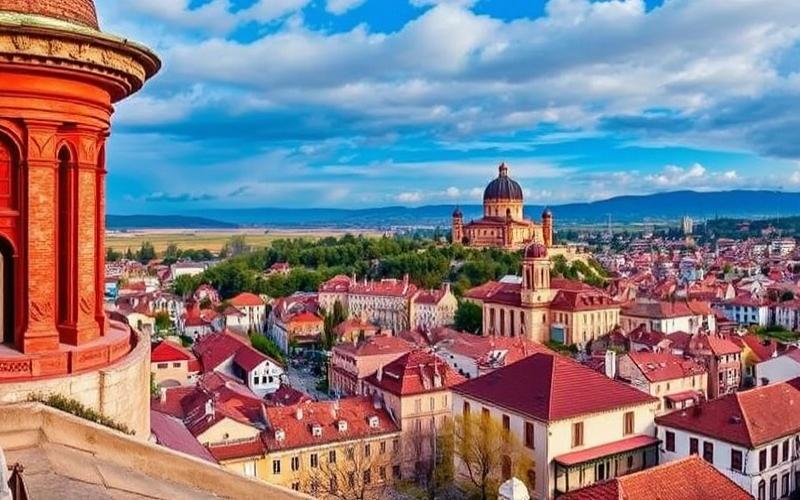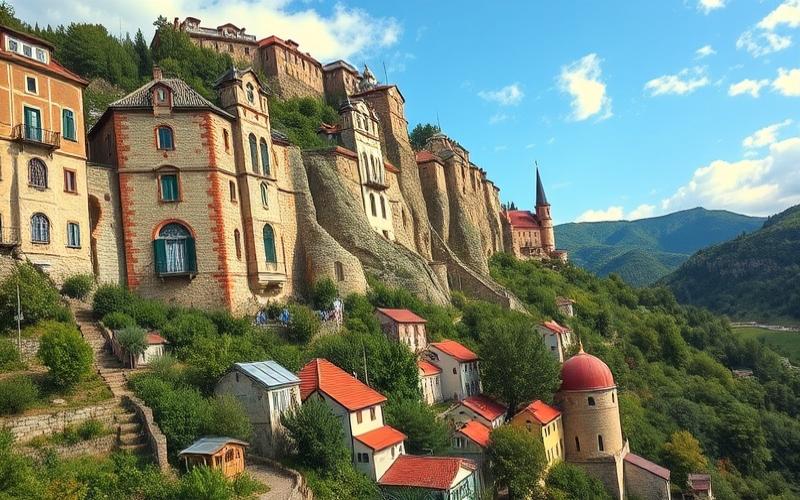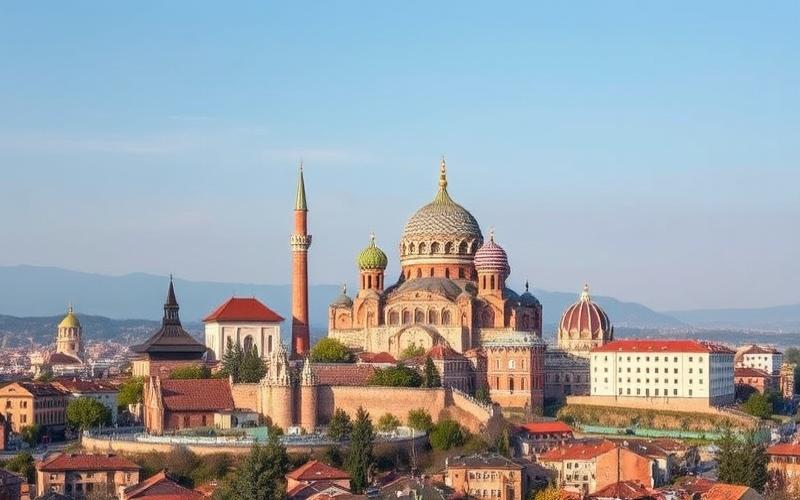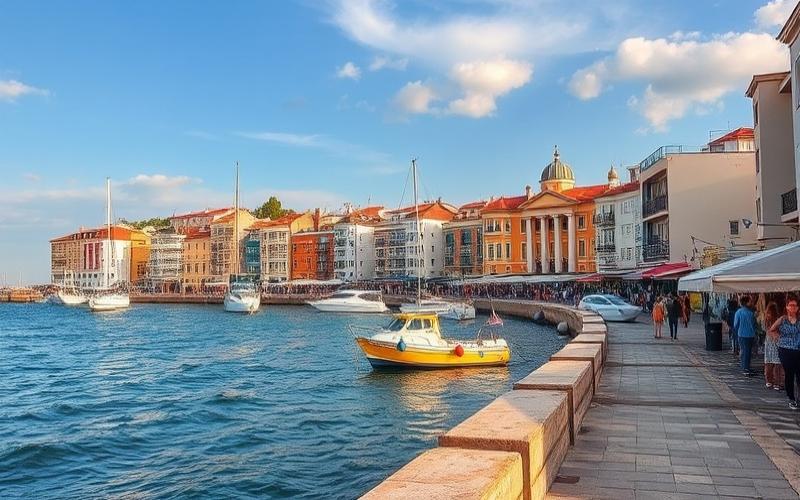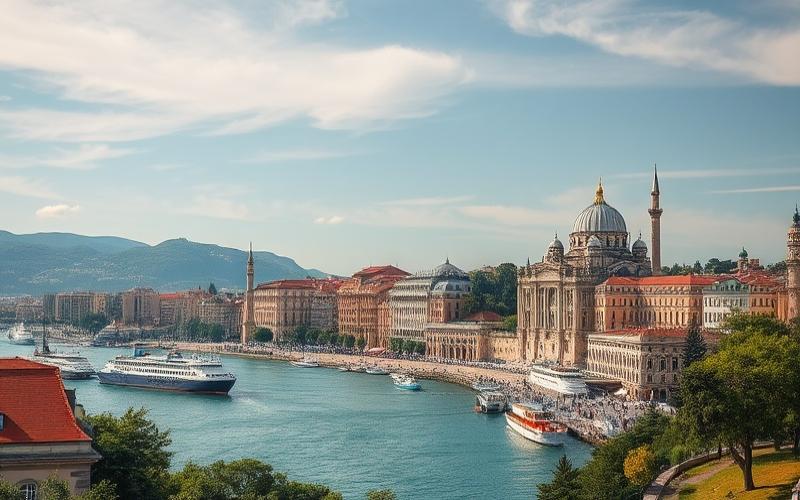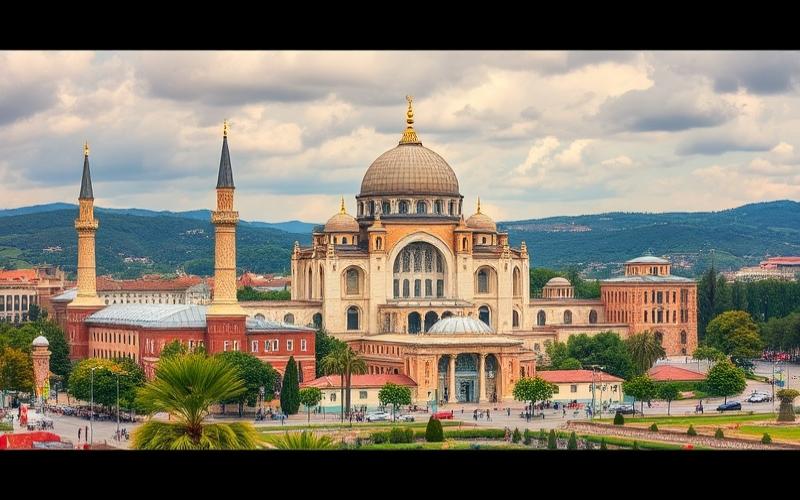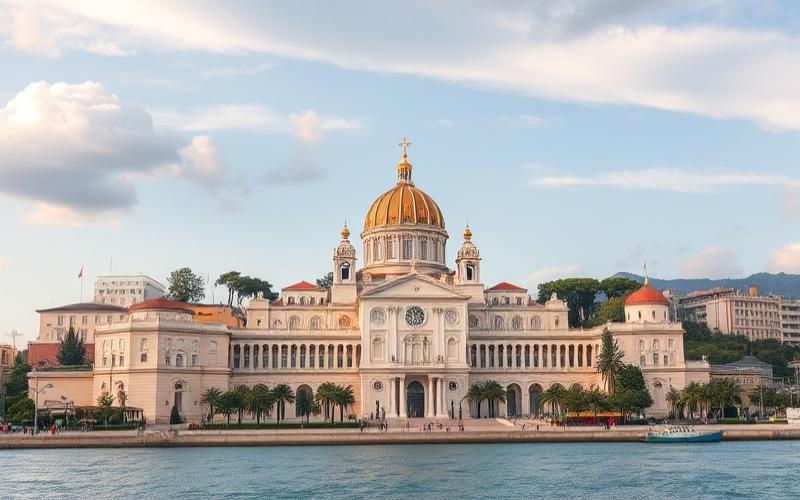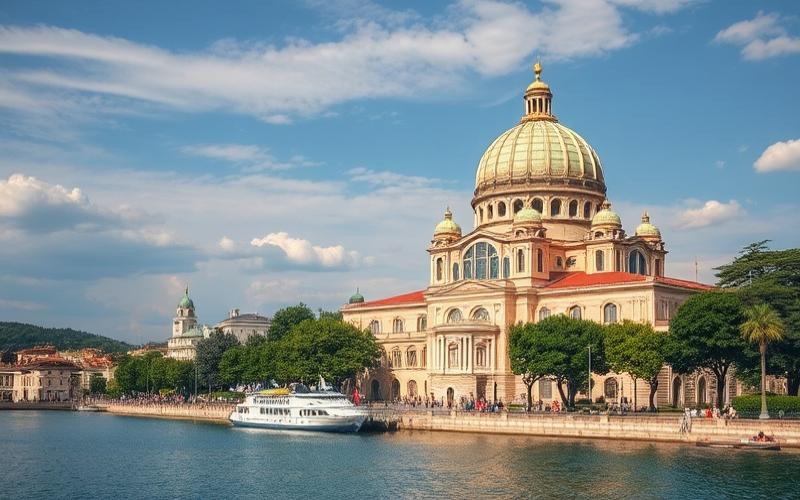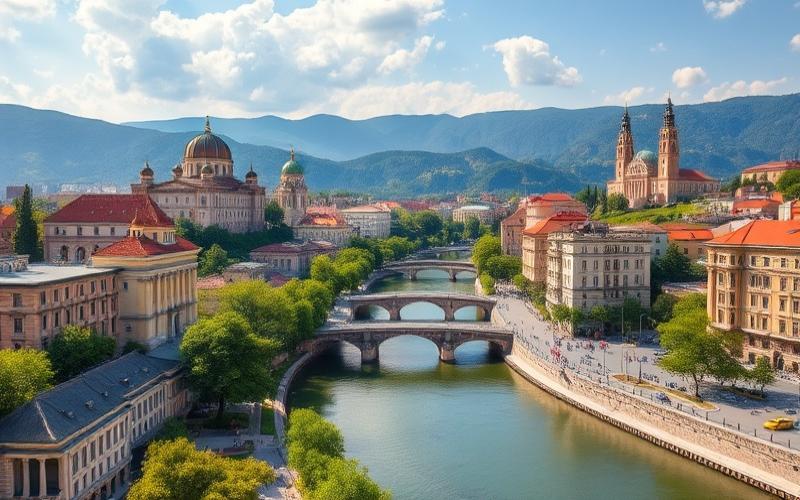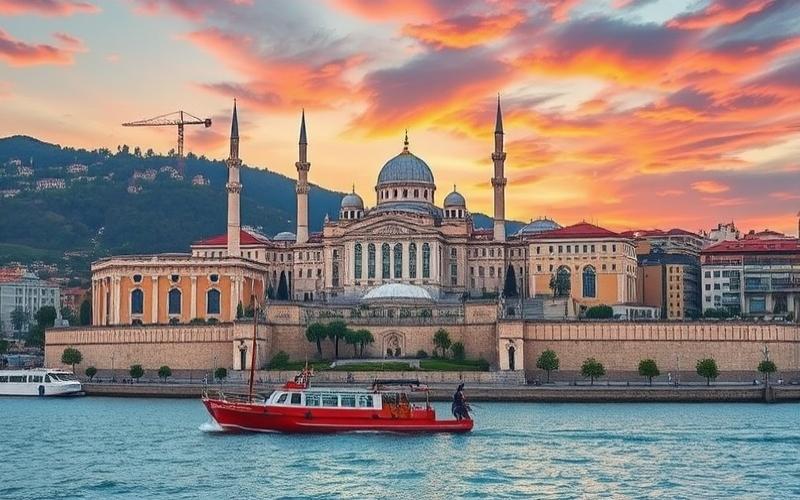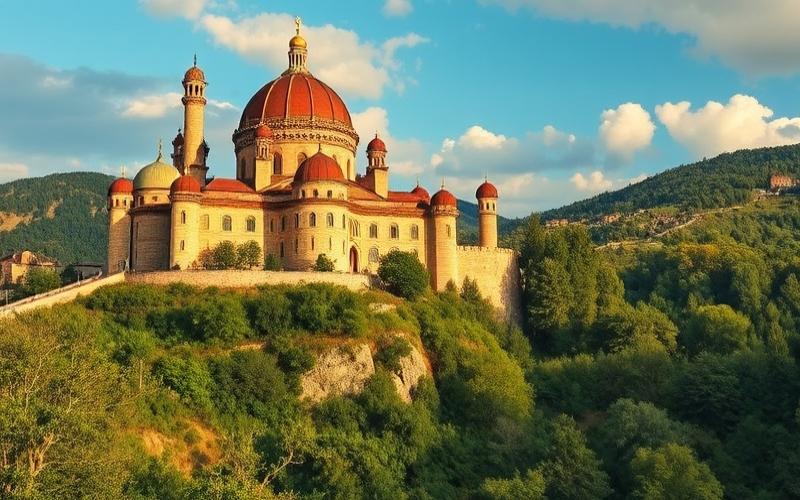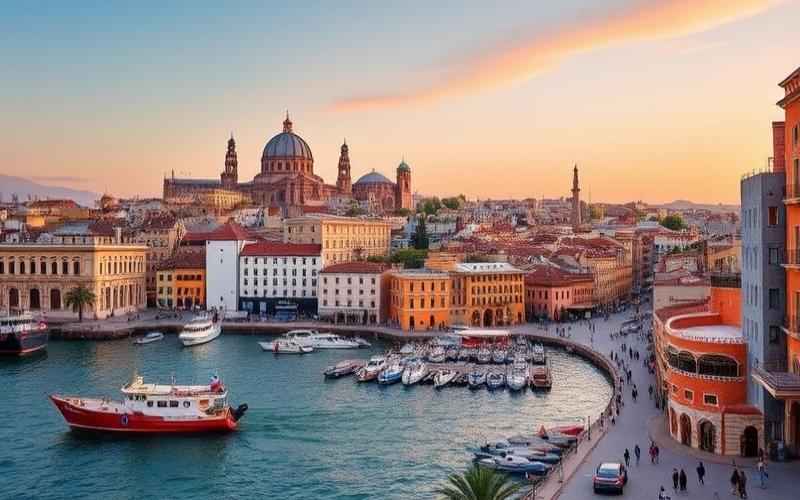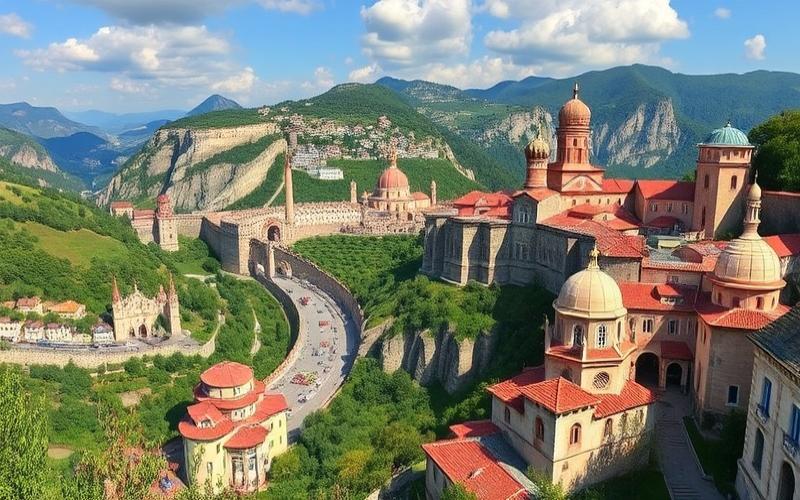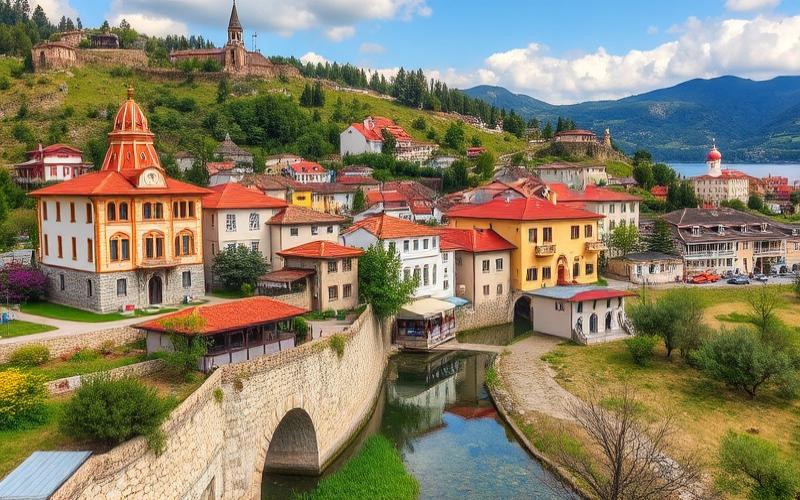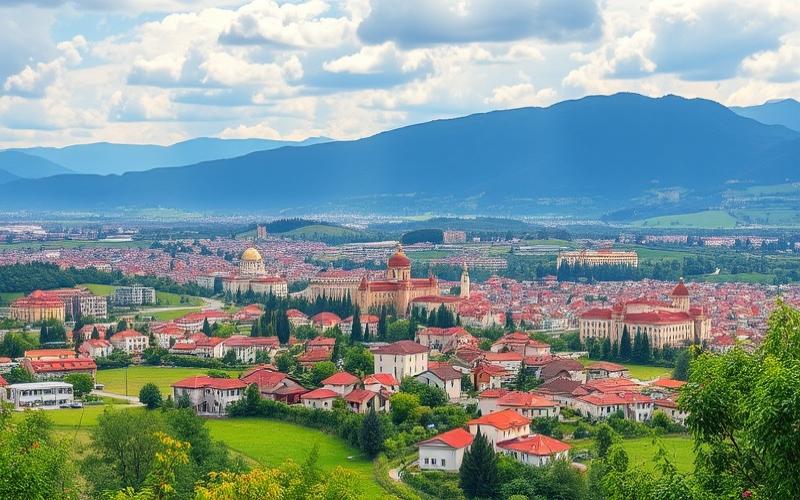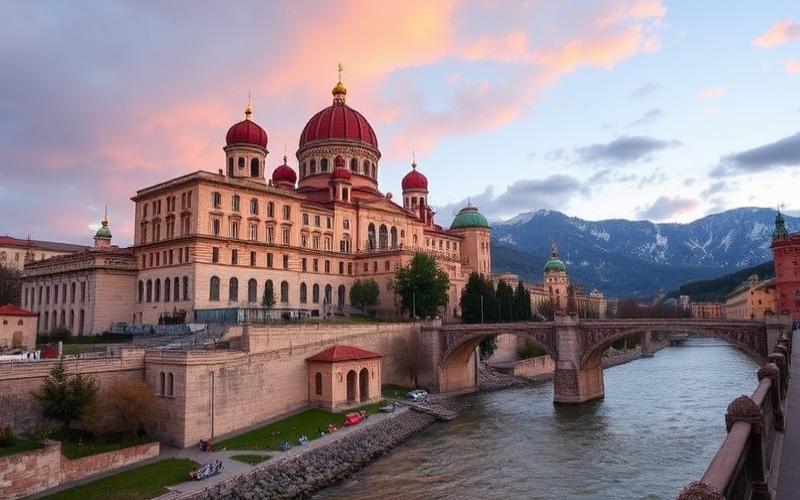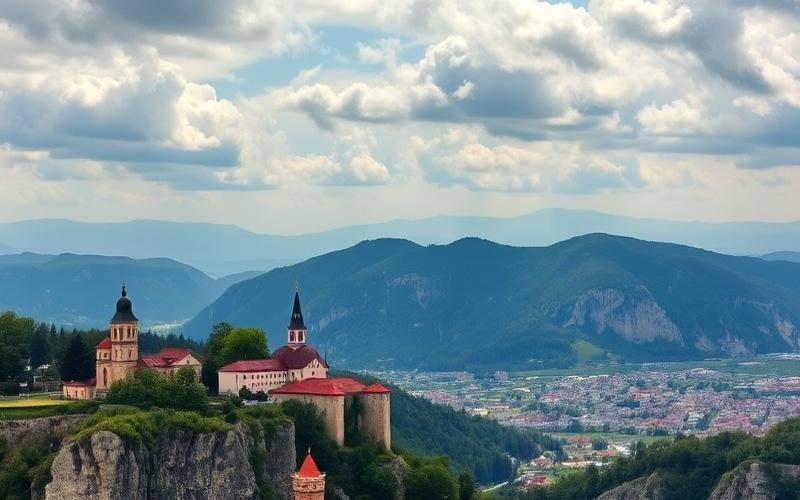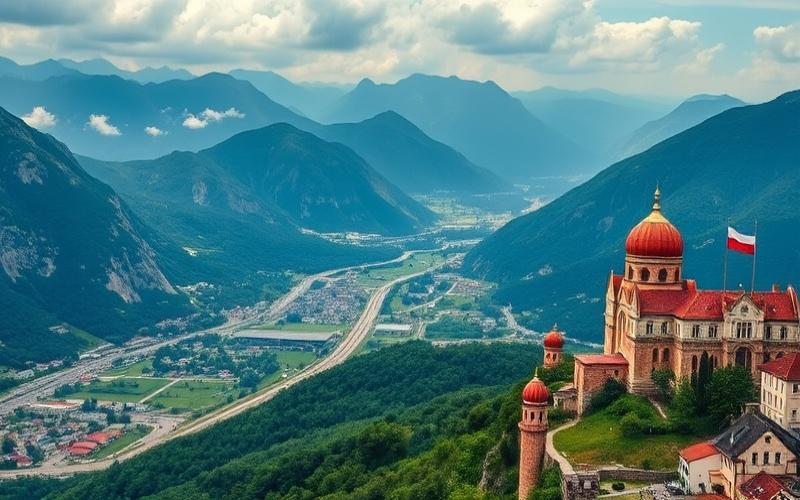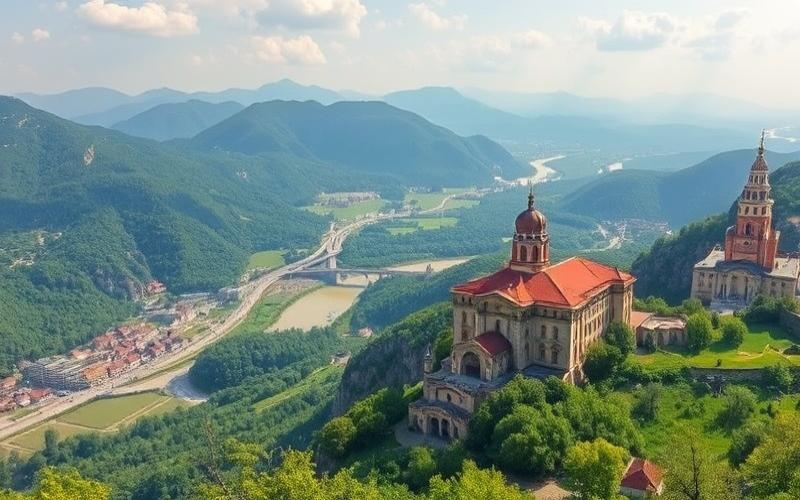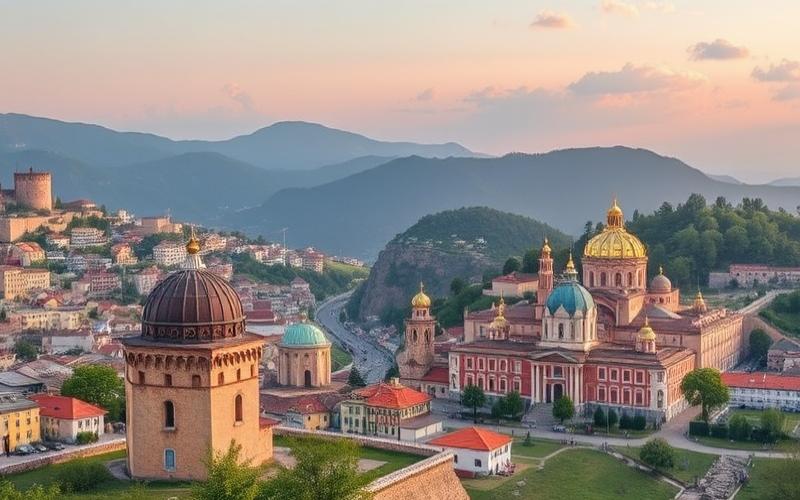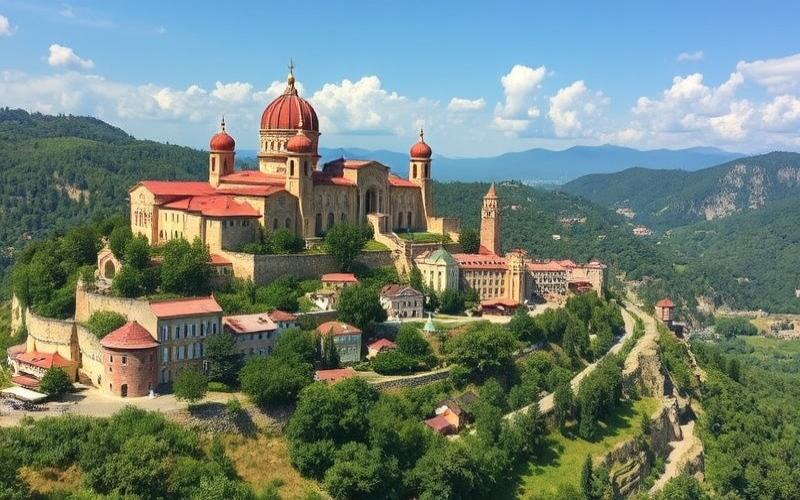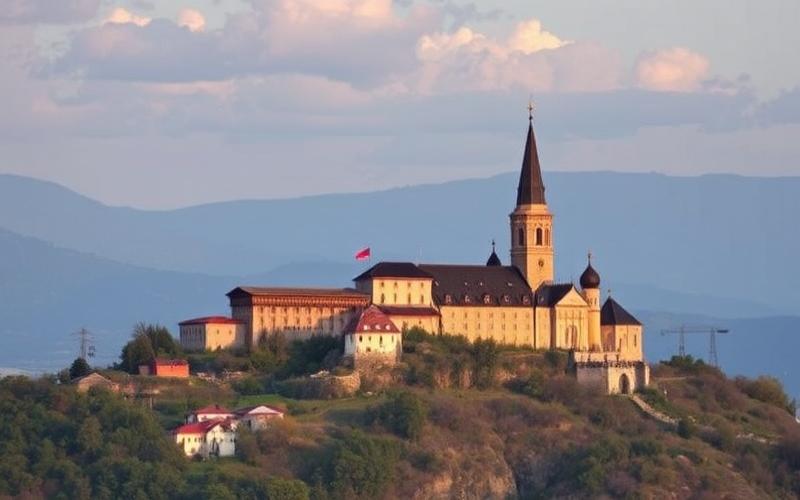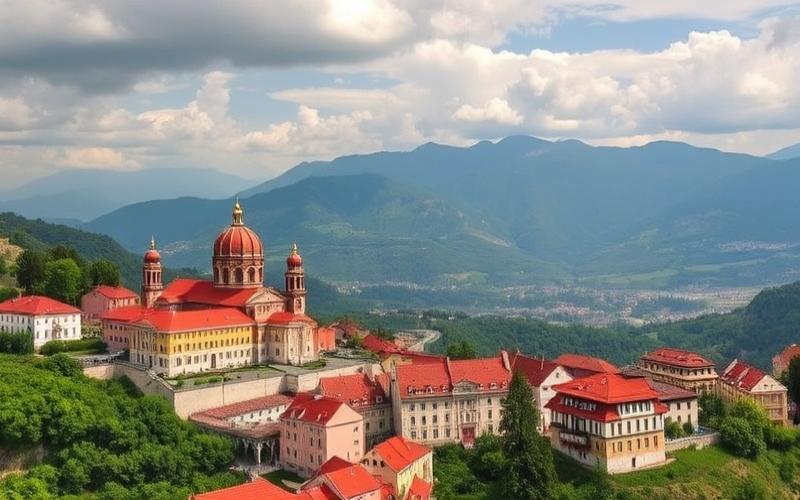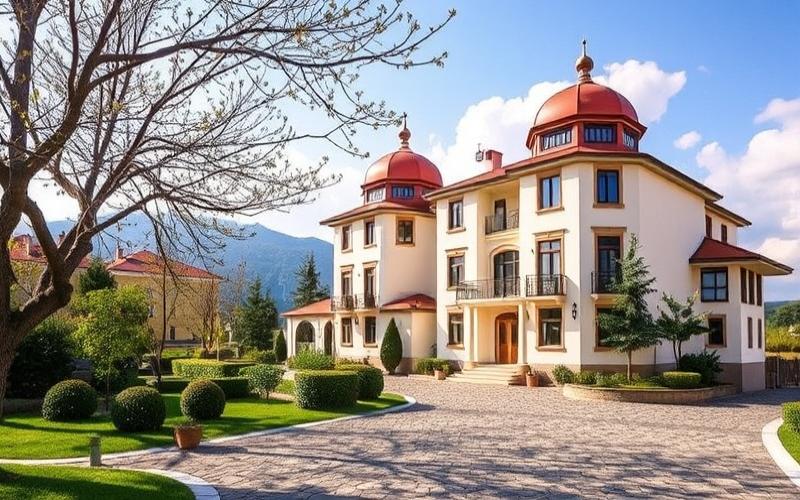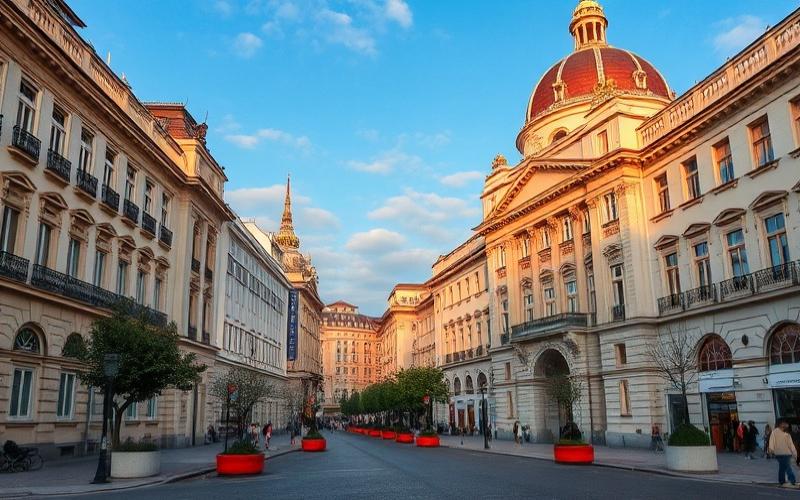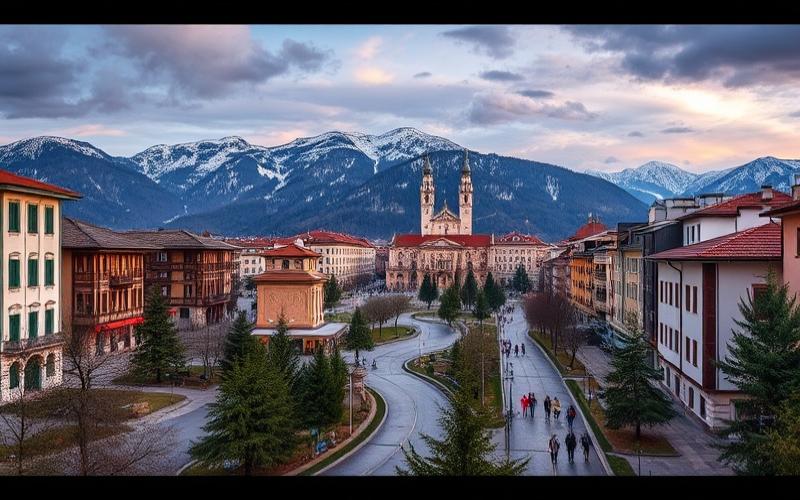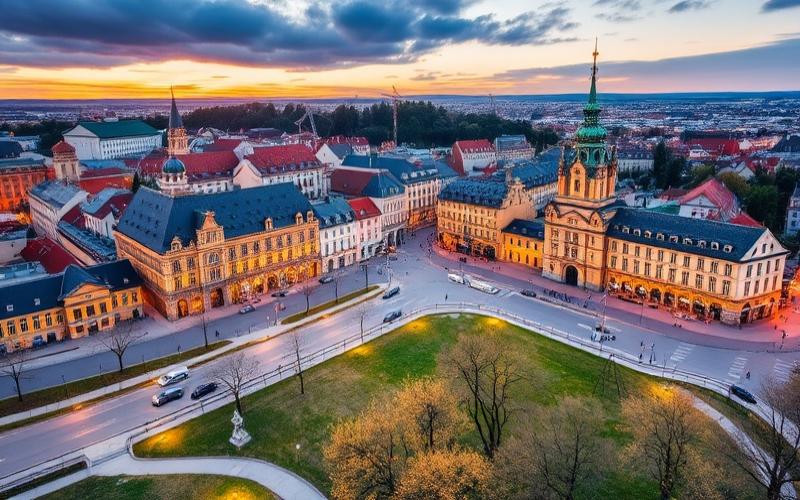
 Published on and written by Cyril Jarnias
Published on and written by Cyril Jarnias
Acquiring a hotel in Bulgaria can be a fascinating and potentially lucrative investment opportunity, but this venture requires a thorough understanding of the local hotel market and current regulations. In this article, we provide a comprehensive checklist to guide you through every step, from selecting the right location to the final acquisition, including essential legal formalities. Deciphering the nuances of the Bulgarian hotel sector, anticipating potential challenges, and capitalizing on the competitive advantages of this rapidly developing tourist destination are all key elements for a successful investment. Prepare to dive into the dynamic world of hotel real estate in Bulgaria with our practical and informative guide.
Overview of the Hotel Real Estate Market in Bulgaria
Current Trends in the Bulgarian Hotel Market
The Bulgarian hotel market is experiencing significant growth, driven by a booming tourism sector and increasing foreign investment. The most prosperous regions for purchasing hotels are primarily Sofia, the capital, as well as the Black Sea resorts like Sunny Beach and Varna. These areas attract numerous investors due to their high tourist potential and real estate prices that remain attractive compared to other European destinations.
Economic Factors Influencing the Market
The tourism sector plays a crucial role in the Bulgarian economy, representing approximately 12% of the country’s GDP. Bulgaria welcomed over 12 million international visitors in 2024, primarily from Romania, Germany, the United Kingdom, and Turkey. This influx stimulates accommodation demand and encourages investment in the hotel sector.
Foreign investment in Bulgarian real estate has also seen a significant increase, with a 121.91% rise in real estate prices since 2015. Bulgaria’s entry into the Schengen Area in 2025 is expected to further enhance its appeal to international investors.
Average Prices and Sought-After Types of Establishments
In Sofia, the average price per square meter for residential properties is around €1,650, while in popular seaside resorts, it ranges between €800 and €1,200 per square meter. For hotels, prices can vary considerably depending on location and establishment quality.
The most sought-after types of establishments include:
- Boutique hotels in historic city centers
- All-inclusive hotel complexes on the Black Sea coast
- Wellness and spa hotels in mountainous regions
- Eco-friendly lodges in rural areas
Comparison with Other Eastern European Countries
Compared to other Eastern European countries, Bulgaria stands out for its still affordable real estate prices and high growth potential. While markets like the Czech Republic or Poland are already more mature and expensive, Bulgaria still offers numerous investment opportunities at competitive prices.
The rental yield rate for hotel properties in Bulgaria is also attractive, typically ranging between 6% and 8%, which is higher than the average in many Western European countries.
Forecasts and Development Prospects
The prospects for the Bulgarian hotel market are promising for the coming years. A continued growth in the tourism sector is expected, with a projected 15% increase in international arrivals by 2027.
The Bulgarian government has also announced plans to improve tourist infrastructure and promote the country as a year-round destination, which should further stimulate the hotel market.
Emerging trends include growing interest in eco-friendly and sustainable hotels, as well as establishments offering authentic and local experiences. Wellness tourism and extended stays combining work and leisure are also on the rise, opening new opportunities for hotel investors.
The increasing adoption of innovative technologies, such as artificial intelligence and automation, is also expected to play a significant role in modernizing the Bulgarian hotel sector and enhancing the customer experience.
Good to Know:
The hotel real estate market in Bulgaria is experiencing growing momentum, particularly in the Sofia and Black Sea coast regions, where purchasing hotels is most attractive. The sector is supported by a steady increase in tourism, with a notable influx of visitors mainly from Russia and Germany, and also benefits from foreign investor interest. Average prices per square meter range around €1,200 to €1,800 depending on location, with high demand for boutique hotels and tourist complexes. Compared to other Eastern European countries, Bulgaria offers competitive value for money and better potential profit margins, making it very attractive to investors. With infrastructure investments and policies favorable to foreign investment, the market is expected to continue its growth, with particular attention towards sustainable development and expanding accommodation capacity over the next ten years.
Why Invest in a Hotel in Bulgaria?
Bulgaria’s Flourishing Tourism Potential
Bulgaria is establishing itself as an increasingly popular tourist destination, attracting a growing number of visitors from around the world. In 2024, the country welcomed 10.7 million foreign tourists during the first 9 months of the year, setting a new record. This remarkable influx is explained by the exceptional diversity of landscapes and activities offered throughout the year.
From the golden sandy beaches of the Black Sea to the snow-capped peaks of the Rila Mountains, through historic cities like Plovdiv, Bulgaria offers a range of experiences for all tastes. Nature lovers can venture into the Pirin National Park, a UNESCO World Heritage site, while history enthusiasts can explore the Thracian ruins and medieval fortresses scattered throughout the country.
An Expanding Hotel Sector
The tourism boom has led to significant development in the accommodation sector in Bulgaria. New hotels, resorts, and charming accommodations have emerged to meet the growing demand. This expansion is accompanied by a particular attention to sustainability, with many establishments adopting eco-friendly practices to minimize their environmental impact.
The Bulgarian government has implemented attractive tax incentives to encourage foreign investment in the hotel sector. These measures, combined with competitive real estate prices, make Bulgaria a prime destination for international investors looking to diversify their portfolio in the hospitality sector.
Among the Lowest Real Estate Prices in Europe
Bulgaria stands out for its particularly affordable real estate prices, ranking among the lowest in Eastern Europe. For example, in 2025, the average price per square meter in major Bulgarian cities remains exceptionally attractive:
- Sofia: €1,200-1,800/m² (city center)
- Varna: €900-1,400/m²
- Burgas: €800-1,300/m²
- Plovdiv: €700-1,100/m²
These competitive rates, combined with steady annual price growth of 5 to 8%, offer interesting capital gain prospects for savvy investors.
A Continuously Improving Investment Environment
The Bulgarian government has launched several initiatives aimed at improving the investment environment in the hotel sector. Among the ongoing projects are:
- Modernization of tourist infrastructure
- Improvement of accessibility, particularly for people with reduced mobility
- Development of new air connections to facilitate access to different regions of the country
Furthermore, Bulgaria’s accession to the Schengen Area on January 1, 2025, is expected to further stimulate tourism, generating according to experts an additional 300 million leva per year for the industry.
Promising Growth Potential
The Bulgarian tourism sector shows encouraging growth prospects. The Ministry of Tourism plans to reach 13 million visitors and €7 billion in revenue by the end of 2025. This growth is supported by several factors:
- Increase in the number of flights to Bulgaria
- Diversification of the tourism offer, with a focus on sustainable tourism and ecotourism
- Development of four-season tourism, reducing dependence on only summer and winter seasons
The adoption of cutting-edge technologies to enhance the tourist experience, such as smart navigation applications and augmented reality guides, also contributes to strengthening Bulgaria’s appeal as a modern and innovative destination.
Good to Know:
Investing in a hotel in Bulgaria is an attractive opportunity due to its rapidly expanding tourism potential, supported by growing attendance thanks to the diversity of its landscapes, from sunny beaches to snow-capped mountains, which attract visitors year-round. The country offers attractive tax benefits to foreign investors, including reduced tax rates for companies in the hotel sector. With real estate prices significantly lower than other European destinations, purchasing a hotel in Bulgaria is an economically competitive option. Furthermore, the constant development of infrastructure, including airport expansion projects and public transport networks, as well as institutional support through government projects, enhance the appeal for investments in this dynamic sector.
Practical Tips for Buying a Hotel in Bulgaria
Preliminary Verification and Analysis
Purchasing a hotel in Bulgaria requires thorough due diligence. Start with a detailed market study, analyzing current and future tourism trends in the country. Carefully examine data on visitor numbers, seasonality, and dominant customer segments. Meticulously verify all required licenses and permits for hotel operation in Bulgaria, ensuring their validity and compliance with local regulations. This step is crucial to avoid any future legal problems.
Budget and Financing
Develop a precise and realistic budget encompassing not only the purchase price but also all additional costs such as taxes, stamp duties, and professional fees. Also plan for sufficient working capital to cover initial operational costs. For financing, explore options offered by Bulgarian banks, which provide mortgage loans of up to €250,000 over 25 years, with interest rates ranging from 3% to 14%. Some banks offer loans in euros, which can be advantageous for foreign investors.
Location and Property Selection
The choice of location is decisive for your hotel’s success. Focus on popular tourist areas like the Black Sea coast, with cities such as Varna or Burgas, or ski resorts like Bansko. Sofia, the capital, can be interesting for business tourism. Evaluate accessibility, local attractions, and future development projects that could impact your property’s value.
Property Evaluation and Inspection
Hire an independent expert to assess the property’s real value and profitability potential. Organize thorough inspections to detect potential structural, electrical, or plumbing issues. Verify the building’s compliance with Bulgarian safety standards, particularly important for establishments receiving the public.
Legal and Contractual Aspects
Navigate the Bulgarian legal framework with caution. Engage a local lawyer specialized in real estate law to guide you through the purchase process. Ensure all documents are properly translated and legalized. Be particularly vigilant during contract negotiations, making sure all conditions are clearly stated and understood by all parties.
Networking and Local Advice
Build a strong network in the Bulgarian hotel industry. Join local professional associations and participate in industry events. Exchange with other hotel owners to obtain practical advice on daily management and specific challenges of the Bulgarian market. Also consult local chambers of commerce for valuable information on the business environment.
Cultural and Managerial Adaptation
Understand and adapt to Bulgarian business culture. Familiarize yourself with local management practices and employee expectations. Consider taking cross-cultural training to better grasp communication and management nuances in Bulgaria. An approach adapted to the local culture will greatly contribute to the long-term success of your hotel investment.
Good to Know:
To buy a hotel in Bulgaria, start with thorough due diligence including market research and analysis of tourism trends, while verifying licenses and compliance. Developing a precise budget is essential, integrating the purchase price, transaction fees, and operational costs, while exploring financing options such as Bulgarian bank loans or international funding. Choose the location wisely based on your target clientele; cities like Sofia or Plovdiv attract diverse tourists. Have the property evaluated and inspected by an expert to detect potential issues before purchase. Navigating the Bulgarian legal framework requires a specialized lawyer to understand contracts. Building a strong local network, by communicating with other owners and local experts, is advantageous. Finally, adapt your management to Bulgarian business culture for the continued success of your hotel.
Profitability Analysis and Prospects of the Bulgarian Hotel Sector
Profitability Analysis and Prospects of the Bulgarian Hotel Sector
The Bulgarian hotel sector is experiencing remarkable growth, driven by a tourism boom and strategic investments. In 2024, the Bulgarian hotel market demonstrated impressive resilience, with performance indicators showing a solid post-pandemic recovery.
Current Market Trends
Hotel occupancy rates in Bulgaria have reached encouraging levels, with a national average of 67% for the year 2024. This performance is particularly notable in the Black Sea coastal regions and ski resorts, where occupancy rates sometimes exceeded 80% during peak periods.
RevPAR (Revenue per Available Room) experienced a significant increase, reaching an average of €75.3 in 2024, a 6.7% rise compared to the previous year. This growth is mainly attributed to increased average rates and improved revenue management by hotel establishments.
Tourist demand in Bulgaria has seen remarkable growth, with over 12 million international visitors in 2024. The main source markets include Romania, Germany, the United Kingdom, and Turkey, demonstrating Bulgaria’s growing appeal as a diverse tourist destination.
Challenges and Opportunities
The Bulgarian hotel sector faces several challenges, including:
- Marked seasonality of tourism, with activity peaks in summer and winter
- Increased competition from neighboring destinations like Greece and Turkey
- The need to modernize some older hotel infrastructure
However, these challenges come with significant opportunities:
- Development of sustainable tourism and ecotourism, in line with global trends
- Expansion of business tourism, particularly in Sofia and major cities
- Emergence of health and wellness tourism, leveraging the country’s natural resources
Investments and Regional Comparisons
Bulgaria has attracted significant hotel investments in recent years. Notably, international chains like Nobu Hospitality have announced the opening of new establishments in Sofia and Varna, demonstrating the growing appeal of the Bulgarian market for foreign investors.
Compared to other Eastern European markets, Bulgaria positions itself favorably. The country recorded RevPAR growth of 10-12% in 2024, surpassing more mature markets like the Czech Republic or Hungary. This performance places Bulgaria among the most dynamic hotel markets in the region.
Short and Medium-Term Prospects
Forecasts for the Bulgarian hotel sector are optimistic. In the short term, continued RevPAR growth is expected, estimated between 5% and 7% per year for the next two years. This growth will be supported by increased domestic tourism and diversification of international source markets.
In the medium term, the sector should benefit from several favorable factors:
- The planned adoption of the euro in 2025, which should stimulate investments and facilitate transactions for international visitors
- Development of transport infrastructure, particularly the expansion of regional airports
- Technological innovation in the sector, with increasing adoption of advanced hotel management solutions and personalized customer experiences
Impact of Policies and European Integration
Bulgaria’s continued European integration plays a crucial role in the development of the hotel sector. The upcoming adoption of the euro should strengthen economic stability and attract more foreign investment in hospitality.
Bulgaria’s advantageous tax policies, with a corporate tax rate of 10%, one of the lowest in the EU, continue to attract investors to the hotel sector. Additionally, government incentives for tourism development in certain regions stimulate growth and diversification of the hotel supply.
The Bulgarian hotel sector is at a promising turning point, combining growth, innovation, and European integration. With solid performance and encouraging prospects, Bulgaria is establishing itself as an attractive investment destination in the European hotel landscape.
Good to Know:
The analysis of the hotel sector in Bulgaria reveals robust occupancy rates, boosted by steady growth in international tourism, despite challenges caused by economic and political fluctuations. RevPAR shows an increase, signaling improved revenue despite increased competition. Recent investments, especially from Western Europe, highlight a reinforced attraction to the Bulgarian market, although challenges persist in terms of modernization and digitalization. Compared to other Eastern European countries, Bulgaria benefits from competitive value for money. In the short term, tourist demand could be affected by global economic volatility, but in the medium term, continued European integration and favorable tax policies herald a climate conducive to hotel investment, with a growing focus on sustainable development and technological innovation.
Disclaimer: The information provided on this website is for informational purposes only and does not constitute financial, legal, or professional advice. We encourage you to consult qualified experts before making any investment, real estate, or expatriation decisions. Although we strive to maintain up-to-date and accurate information, we do not guarantee the completeness, accuracy, or timeliness of the proposed content. As investment and expatriation involve risks, we disclaim any liability for potential losses or damages arising from the use of this site. Your use of this site confirms your acceptance of these terms and your understanding of the associated risks.


